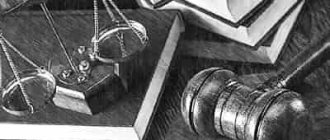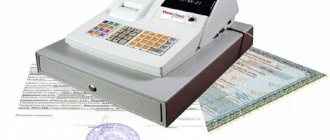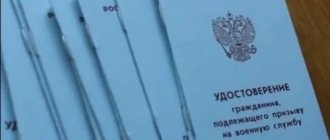General provisions
The procedure for compliance with discipline by employees and measures of liability for violations is discussed in Section VIII of the Labor Code of the Russian Federation. Art. 192 states that the violator is called in 3 ways:
- They reprimand.
- They make a remark.
- They are fired for negative reasons.
These are disciplinary measures.
There are no other options. There is only a special responsibility that does not apply to all employees, but to some categories of employees. For example, if such disciplinary measures are applied to a military man, he will not be entitled to awards. The only incentive can be the removal of the penalty. https://youtu.be/waSGO6Q2RSY
Special disciplinary responsibility
These measures can also be used for employees of commercial institutions in which the norms of the Labor Code of the Russian Federation apply. The manager has the right to deprive an employee of a bonus. For secondary punishment, dismissal is possible under clause 5 of Art. 81. Law of the Russian Federation.
In some companies, when creating bonus provisions, conditions are introduced according to which the bonus is issued only in the absence of recovery. But this may also be included in the employment contract. The penalty is valid for a year, so no bonus is given to the violator.
Removal of disciplinary action
“Human Resources Department of a Commercial Organization”, 2011, N 11
REMOVAL OF DISCIPLINARY PENALTIES
In the process of work, personnel officers repeatedly have to draw up documents to bring the employee to disciplinary liability. Most likely, they know the procedure for imposing a disciplinary sanction thoroughly: this process is quite clearly regulated in the Labor Code, and periodicals quite often publish materials on this topic. But from time to time the question arises about how to formalize the removal of such a penalty and whether it is necessary to formalize it at all. Today we will tell you in what case it is possible and necessary to remove a disciplinary sanction and how to formalize it.
A little about labor discipline
In accordance with Art. 189 of the Labor Code of the Russian Federation, labor discipline is understood as obligatory for all employees to obey the rules of conduct determined in accordance with this Code, other federal laws, collective agreements, agreements, local regulations, and employment contracts. Simply put, labor discipline means arriving at work on time, observing the established working hours, rational use of time for the most productive (fruitful) work, and exact execution of administration orders. At the same time, the legislator obliged the employer to create the conditions necessary for the employee to comply with labor discipline.
Legal regulation of labor discipline is carried out using internal labor regulations, job descriptions and other local acts of the employer, the main task of which is to regulate the behavior of all team members, to subordinate their actions to the single goal of the labor process, taking into account the production conditions and the specifics of the organization of work at a particular employer. Internal labor regulations form the basis of labor discipline.
The employer can encourage employees who conscientiously perform their job duties and observe labor discipline: express gratitude, give a bonus, award a valuable gift, a certificate of honor, or nominate them for the title of the best in the profession. Also, the employer in the internal labor regulations or collective agreement can determine other types of incentives for work (Article 191 of the Labor Code of the Russian Federation).
But for failure or improper performance by an employee through his fault of the labor duties assigned to him, that is, for committing a disciplinary offense, the employer has the right to apply disciplinary sanctions: reprimand, reprimand, dismissal.
For commercial organizations, by virtue of the Labor Code, this list is exhaustive; the employer has no right to apply any other types of punishment, such as fines. But we should not forget that charters and regulations on discipline may provide for other punishments for certain categories of workers. For example, in accordance with clause 15 of the Charter on the discipline of workers of the fishing fleet of the Russian Federation <1>, in addition to those provided for by the Labor Code, the following types of disciplinary sanctions can be applied:
- severe reprimand;
— warning about incomplete official compliance;
— confiscation of diplomas from captains and command staff of the fishing fleet for a period of up to three years with transfer, with the consent of the employee, to another job for the same period, taking into account the profession.
———————————
<1> Approved by Decree of the Government of the Russian Federation of September 21, 2000 N 708.
Please note that the penalties listed above can be applied in any order, depending on the severity of the employee’s offense and its consequences. That is, the employer can reprimand the employee or fire him outright (if conditions exist that allow this to happen). Let us remind you that only one disciplinary sanction can be applied for violation of labor discipline, that is, you cannot reprimand and dismiss (Article 193 of the Labor Code of the Russian Federation).
Removal of disciplinary action
By virtue of Art. 194 of the Labor Code of the Russian Federation, if within a year from the date of application of the disciplinary sanction the employee is not subject to a new penalty, he is considered not to have had a disciplinary sanction. In this case, no additional orders need to be issued. If an employee violates labor discipline again within a year and the employer applies a new penalty for this, the period for “automatic” withdrawal will be counted anew from the moment the order to apply the last penalty is issued.
A question may arise here: if an employee who has a disciplinary sanction is transferred to another position and a second disciplinary offense has already been committed there, will it be repeated? Yes, it will, and here's why. Transfer to another position or work with the same employer does not relieve the employee from a previously imposed disciplinary sanction. Therefore, if 12 months have not passed since the first disciplinary sanction was applied and during the same period the employee violates labor discipline again, the violation will be considered repeated. In this case, the employer has every reason to dismiss such an employee under clause 5, part 1, art. 81 of the Labor Code of the Russian Federation - in connection with repeated failure to fulfill labor duties without good reason.
Note! The Labor Code does not establish any minimum period after which the question of lifting a disciplinary sanction may be raised. In each case, this is determined based on the specific circumstances and behavior of the employee.
When determining the repetition of violations of labor discipline, disciplinary sanctions that have been lifted or extinguished are not taken into account.
A disciplinary sanction may be lifted before the expiration of a year from the date of its application:
- at the initiative of the employer (based on his own observations of the employee, an order is issued to lift the disciplinary sanction);
- at the request of the employee (having realized his negative behavior, he turns to the employer with an application addressed to the head of the organization or another person authorized to resolve issues in this area);
- at the request of the immediate supervisor (usually he draws up a petition or presentation);
- at the request of the representative body of employees (can be presented in the form of a petition or presentation, or also stated orally, for example, at a meeting of employees. If oral, such a petition is recorded in the minutes of the general meeting of employees and must be considered by the employer).
Registration of foreclosure removal
So, as can be seen from the above, in order to terminate a disciplinary sanction before the end of a year, the employee is required to have impeccable behavior, effective work and ensure high other indicators so that the employer understands that it is possible to lift the sanction ahead of schedule.
Let's consider the procedure for lifting a penalty when this initiative comes from the immediate supervisor. First of all, he draws up a petition, presentation or memo, in which he indicates from whom and for what reason he considers it necessary to remove the penalty.
To the HR department of R. L. Dymova, Director of Prom Auto LLC
Prepare an order. T. G. Rosenovsky
10/11/2011, Rosenovsky
SERVICE NOTE
10.10.2011 N 5
from —————
Driver Dmitry Petrovich Saraev was reprimanded for being an hour late for the start of his shift. Currently, Saraev D.P. proves himself to be a responsible and disciplined worker. He has no complaints about the results of his work and conscientiously performs his job duties. In this regard, I ask that the disciplinary sanction that was applied to Saraev D.P. be lifted ahead of schedule by order dated July 12, 2011 No. 26-k.
Head of the transport department Krivorul /A. N. Krivorul/
Based on such a petition, if the decision of the head of the company or another person authorized to resolve issues regarding disciplinary sanctions is positive, an order is issued. There is no unified form for this order, so the organization develops it independently. The order must indicate:
- last name, first name, patronymic of the employee;
— employee position and structural unit;
— grounds for lifting a disciplinary sanction;
— date of removal of the penalty.
Such an order must be familiarized to the employee against signature.
Limited Liability Company "Prom Auto"
Saratov October 11, 2011
Order N 36-k
on the removal of disciplinary action
In connection with the conscientious performance of labor duties and internal labor regulations by the driver Dmitry Petrovich Saraev and on the basis of Art. 194 Labor Code of the Russian Federation
I order:
remove the disciplinary sanction in the form of a reprimand applied by order of July 12, 2011 N 26-k.
Reason: memo from the head of the transport department A. N. Krivorul dated 10.10.2011.
Director Rosenovsky /T. G. Rosenovsky /
The following have been familiarized with the order:
Driver Saraev, 10/11/2011 /D. P. Saraev/
Head of HR Department Dymova, 10/11/2011 /R. L. Dymova/
Let us note that the personnel officer must keep records of penalties imposed and record the application of disciplinary measures, since it is possible to terminate the employment contract at the initiative of the employer due to repeated violation of labor discipline. You can provide accounting in various ways, for example, filling out section. X “Additional information” in the personal card <2>, keep a sheet of penalties in your personal file, a special log of disciplinary sanctions.
———————————
<2> Form N T-2, approved. Resolution of the State Statistics Committee of Russia 01/05/2004 N 1 “On approval of unified forms of primary accounting documentation for recording labor and its payment.”
T. Yu. Komissarova
Journal expert
"Human Resources Department
commercial organization"
Signed for seal
31.10.2011
Causes
Disciplinary action is imposed for:
- Disciplinary offense.
- Violation of an employment agreement.
- Failure to perform duties in good faith.
Actions are taken for one or more of these reasons. The manager appoints a disciplinary commission, which, after studying the circumstances, chooses an appropriate penalty. The causal relationship of punishment is accepted in agreement with the team. But the manager can resolve the issue independently, taking into account the norms of the law.
Early removal of disciplinary sanctions from civil servants, military personnel, and workers is carried out according to uniform provisions. Employers need to take into account the rules of the law, otherwise if violations are discovered, they themselves will be held accountable. The removal procedure allows the employee to continue working in his position.
Imposition of disciplinary action
Disciplinary actions are not noted in the work record book. They are registered in the T-2 card, indicating the order number. When filing a recovery, you need to make sure that the norms of the Labor Code of the Russian Federation are met:
- The violation did not result in more than 1 punitive action.
- The employee knows the labor regulations, which is confirmed by the signature on the documents.
- No more than 6 months passed from the date the offense was committed until the order was issued.
- The order is not issued during sick leave, vacation, or while in public service.
- The employee is familiar with the order.
- The offender wrote an explanatory note.
- The validity and extension periods of collection comply with the law.
If the violator wants to appeal the measures, failure to comply with the above standards in some cases leads to a decision in his favor, since the employee’s guilt may be considered unproven. Therefore, the employer needs to impose a penalty only if there are really reasons for this.
Appeal
According to Art. 193 of the Labor Code of the Russian Federation, an employee who does not agree with the decision can appeal it. In this case, he has the right to contact the following authorities:
- The Labor Dispute Commission, which operates at the enterprise. It consists of officials and employees.
- State Labor Inspectorate.
- Court.
A copy of the application with an acceptance mark remains with the employee. It is desirable that he provide convincing arguments in his favor, enshrined in the articles of the Labor Code of the Russian Federation. And the employer will have to justify the punishment. The investigation of the case is carried out for at least a month, during which the punishment is suspended. There are probably two ways to solve the problem:
- Refusal to satisfy the complaint due to the absence of violations of the Labor Code of the Russian Federation.
- Cancellation of foreclosure.
If the court upholds the claim, the organization pays the legal costs. If a punishment for misconduct is imposed in the form of dismissal, the employee is reinstated in his position. The employer reimburses wages for the entire period of forced absence. Given the length of court hearings, the process can last several months.
Removing a reprimand or reprimand
Only penalties in the form of a reprimand or reprimand are removed from the employee; the period for this is the same and equal to one year. Dismissal cannot be withdrawn.
In order for an employee to be considered free of penalties after a year has passed from the moment a disciplinary sanction was imposed on him, during this period he must not commit any misconduct on his part that entails the imposition of a new sanction.
If such violations were committed, then the countdown of the one-year period begins from the day the last penalty was imposed.
Withdrawal rules
In this procedure, everything must also be in accordance with the law. The removal of a disciplinary sanction ahead of schedule is carried out by the director. He may be forced to do this by a labor inspector or a labor dispute commission. According to Art. 193 of the Labor Code of the Russian Federation, a punished employee may disagree with the measure applied to him and appeal the decision of management to the State Labor Inspectorate or to the dispute commission.
The following decisions are made on complaints:
- Satisfaction of the complaint if violations of the law are found. Then an order to cancel the order is submitted.
- Denial of satisfaction.
Upon satisfaction of the complaint, an order is issued to cancel the document on punishment. After this, this measure ceases to apply.
Early removal of foreclosure: general provisions
In accordance with Part 1 of Art. 192 of the Labor Code of the Russian Federation (hereinafter referred to as the Labor Code of the Russian Federation), for violation of labor discipline the following can be applied to an employee as a sanction:
- comment;
- rebuke;
- dismissal.
To find out who has the right to hold an employee accountable, read our article at the link: Which bodies bring disciplinary action? More details about the preparation and issuance of orders for bringing to responsibility are set out in the article at the link: Order for bringing to disciplinary liability.
Art. deals with the removal of penalties. 194 of the Labor Code of the Russian Federation, according to Part 1 of which disciplinary action is valid for an employee for 1 year. If within the specified time he does not commit the offense again, it is considered that he has no penalty.
Removal of a disciplinary sanction early is also permitted. According to Part 2 of Art. 194 of the Labor Code of the Russian Federation, the administration may remove the penalty before the expiration of the established one-year period:
- on your own initiative;
- at the request of the employee brought to justice;
- at the request of his immediate superior;
- petition of the trade union committee.
If the administration is not ready to lift the penalty early, and the employee does not agree with its imposition, a labor dispute takes place, which often ends up in court. Read about the latest judicial practice on labor disputes in our material at the link: Review of decisions on labor disputes in judicial practice.
Withdrawal procedure
Art. 194 of the Labor Code of the Russian Federation states that the period of disciplinary action is 1 year. After this, the punishment ends automatically. But it is possible to remove the disciplinary sanction early. The Labor Code of the Russian Federation does not consider situations in which measures are lifted ahead of schedule, but Art. 191 there is a basis for reward - for conscientious work. The rationale can be applied to this procedure.
Removal of a disciplinary sanction ahead of schedule is possible if the offender exhibits the following positive dynamics:
- No complaints about the work.
- Making improvement proposals.
- Plan overfulfilment.
- Prevention of accidents, accidents.
- Active participation in community service.
In these cases, the period of disciplinary action may be short. If the employee begins to take a more responsible attitude towards his activities, then this measure will be canceled. A disciplinary sanction for committing a disciplinary offense is lifted according to the norms specified in Art. 194 Labor Code of the Russian Federation:
- The manager has the right to independently cancel the penalty based on personal observations of the employee. For this purpose only an order is issued.
- The employee can ask management about this, presenting his reasons.
- The supervisor of the punished employee may submit a petition to the director.
The procedure for applying and removing penalties from an employee
The procedure for applying and lifting disciplinary sanctions is established in the Labor Code of the Russian Federation and can be detailed in the local regulatory legal acts of the employer, without deteriorating the rights of employees established by law. Read more about the specifics of drawing up orders related to the personnel of an organization in our article at the link: Orders regarding personnel - what are these orders?
This is also important to know:
What is disciplinary action, in what cases is it applied?
In accordance with Art. 193 of the Labor Code of the Russian Federation, the procedure for applying penalties presupposes, in particular, the following:
- one offense can entail only one disciplinary measure;
- Before issuing an order, explanations must be received from the employee;
- if the employee has not provided an explanation, a penalty can still be declared if the refusal to provide an explanation is properly activated;
- the period for issuing an order is 1 month from the moment the offense became known;
- no more than 6 months must have passed after the commission of the offense;
- the period increases from 6 months to 2 years if the misconduct became known, for example, as a result of an audit;
- After the order is issued, the employee becomes familiar with it.
The procedure for lifting a disciplinary sanction from an employee, as stated, is defined in Art. 194 of the Labor Code of the Russian Federation and involves issuing an order to lift the penalty both at the initiative of the employer himself and the employee brought to justice and other entities. Petitions for the removal of penalties from an employee are described in more detail in our article at the link: Petition for the removal of a disciplinary sanction - sample.
Decor
Collection is terminated based on 2 documents:
- Petition.
- By order.
If the procedure was initiated by the director, then the registration includes stage 1 - you only need to issue an order. But if this issue is resolved by the team, then a petition for leniency towards the punished employee must first be submitted to the director.
Petition
There are no uniform rules for the preparation of this document. It is compiled in free form. But a sample petition for early removal of a disciplinary sanction will help you write it correctly. The document consists of:
- Hats.
- Preambles.
- The pleading part.
The first part includes the full name and position of the manager, as well as the full name. and the position of the applicant. Then you need to specify to whom the penalty was imposed and for what. Following this information, the need to remove the measure for specific reasons should be indicated. The application to lift the disciplinary sanction is signed ahead of schedule by the applicant. The head of the site, the chairman of the trade union committee, and a representative of the team have the right to sign and submit it.
Base
The reason for canceling a remark/reprimand may be:
- Leader's initiative.
- Diligent compliance by the employee with the requirements of the internal labor regulations in the period following the day the disciplinary sanction is announced (the result can be either early or automatic cancellation of the punishment).
- Petition from colleagues, trade union representative.
- Petition from the direct supervisor of the person being punished.
Automatic removal of a remark/reprimand for violation of labor discipline occurs if the condition stated in the Labor Code in the first paragraph of Art. 194. (An employee who has not violated the set of internal rules of the enterprise by behavior within 12 months from the date of the issuance of the order of punishment is considered not to have had a disciplinary sanction).
Rules for drawing up an application
In the right corner of the petition, indicate the position and initials of the manager for whom the petition is intended. In the place where the name of the document is indicated, write “Petition”.
If the petition is written by the boss of the punished employee , the latter’s colleagues or a representative of the trade union, then in the body of the document the name of the offending employee and his specialty are mentioned, and the basis is indicated.
If the petition is written by the offender himself , then the document is drawn up in the first person, and the text should indicate the basis for the manager to cancel the remark/reprimand.
The basis is considered to be exemplary behavior, hard work, etc.
The document should be certified by indicating the date, name and position of the person who wrote the petition.
Order
If the boss makes a positive decision, an order is issued. This document does not have a mandatory form, so it must be drawn up in accordance with the company’s business practices. The order contains:
- Company name.
- Date and number.
- Information about the employee.
- Base.
- Director's visa.
- Introduction line.
All persons specified in the document must familiarize themselves with the contents of the order. The procedure for removing the penalty is completed after it is signed and endorsed with the filed petition. Documents are placed in a folder according to nomenclature. Then the personnel officer writes down the details of the order in the T-2 card, after which the penalty will be completely lifted.
How to remove?
Next, we’ll talk about how to lift a disciplinary sanction ahead of schedule; a sample petition for the removal of a disciplinary sanction and order can be downloaded below.
- Automatic the disciplinary sanction is lifted after the expiration of time and cannot be reapplied.
Let's find out how long it takes to remove this overlay. Validity - 1 year.The current punishment is removed if there are no repeated impositions during this period .
If any form requires indicating the presence of a punishment, a year after they were imposed , the employee must write “no.”
Repeated disciplinary action before the expiration of the year of its application prolongs the first one. The countdown begins anew from the moment the order of punishment for the last offense is issued.
The wording in the order “ systematic violation ” in this case will be correct.
- Early removal of disciplinary action.
Initiator early withdrawal of foreclosure May be the employee himself, the employee’s superior manager, the trade union committee or the employer.Any disciplinary sanction, including verbal, is considered lifted if the employee has shown positive behavior .
In favor of the one who corrected the situation with conscientious work and the absence of comments on labor discipline, a written petition to lift the disciplinary sanction (a sample is available for download below) can be submitted to the manager.
An application for the removal of a disciplinary sanction (a sample order below in the article) must contain the date and number of the initial order, the type of disciplinary sanction; the essence of the violation need not be recorded again in the document.
Petition to lift a disciplinary sanction, example.
Sample order for early removal of a disciplinary sanction.
Cancellation of a disciplinary sanction order, sample.









